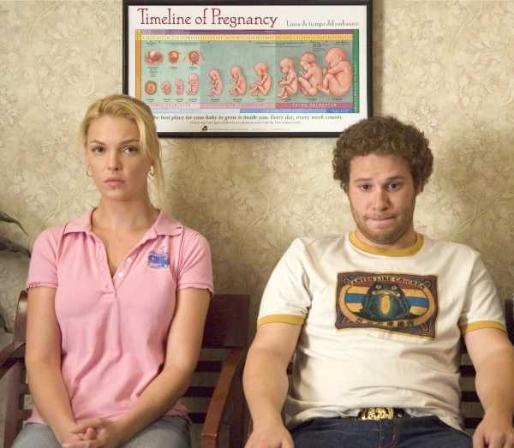Course Objectives
- Understand that popular culture signifies and shapes political, familial, and institutional sources of selfhood and human relations
- Comprehend verbal and visual representations of these disciplinary forces through literal, implied, and symbolic levels
- Identify a text’s point of view, tone, exposition, and audience
- Analyze ideology through the textual and visual
- Gain cultural literacy through experiencing films, internet sites, and literary works
Course Evaluation
There are five class projects:
- Ethnography
- Response Paper
- Primary Text Class Presentation
- Final Essay
- Blog with weekly blog reflections
1. Ethnography
Ethnography is a genre of writing that uses fieldwork to provide a descriptive study of human societies. Choose a setting where people go and where you can sit and observe uninterrupted for at least an hour, e.g., Starbucks, library, park, bar, restaurant, bowling alley, etc.
Write down your observations. Try to be objective as you look for radical as well as normative strands of love (as we've been defining "radical romance"). Under your observation, write a brief analysis informed by the theory and fiction/film we've read/seen thus far. Be sure to bring a notepad and take notes. Your ethnography will look like this:
- First half is observation. Write down what you see not what you think it means
- Second half is analysis. Use our texts to makes sense of your observations
- @ 750 words (three pages)
- Post ethnography to blog
- Hardcopy for class discussion
2. Response Paper
Your three-page response paper (@750 words, not including Works Cited) addresses an “outside” text that sheds light on our theme. Draw from our theory, supplemental readings, and class discussions. Create and post on your blog (see “Blog” below). The response paper should include:
- A logical flow of ideas with unified paragraphs and effective transitions
- Effective incorporation of research materials, primary text(s), and other texts
- MLA documentation including Works Cited page
- Post on blog
- Hardcopy for peer review
3. Primary Text Class Presentation
In groups of six or seven, select one of our primary texts (Sula, Knocked Up, Seinfeld, Cat on a Hot Tin Roof, or MySpace.com) and discuss their relation to our course theme (and other texts) in a 30-minute class presentation (discussion not lecture). Help your classmates analyze content, genre, and technique. Consider how your text presents class and gender and resists and/or reaffirms old ways of seeing human relations. Note the following:
- Design a classroom activity
- Each individual is responsible for a one-page (@ 250-word) analysis that states in explicit terms how s/he contributed to the group presentation. Posted on blog
4. Final Essay
Much like your response paper, your final, ten-page essay uses a primary text and supplemental readings to put forth a specific critique of a contemporary issue related to the "radical romance" that you find interesting and important. That is, go beyond our texts to establish a clear position on a main topic. How, for example, do our primary texts and supplemental readings shed light on political, economic, and institutional realities? Like your response paper, this longer essay should represent careful scholarly work. Final essay created and posted on blog.
5. Blog
During the first week of class, create a blog devoted to our theme, the radical romance. Be prepared to discuss your blog to the class. NOTE: Each week includes a weekly blog reflection on our readings and/or class discussions. All writing projects will be created and posted on blogs. Your blog is a legitimate research website that scholars may access from around the world.
Participation
Class participation includes discussions, student-instructor conferences, and workshop activities. Everyone has something to contribute to the class, and there is always an opportunity to learn from each other. If you do not feel comfortable speaking in class you may participate in other ways. Although participation grades will not be distributed, I will be happy to discuss any questions you have about your progress.
NOTE: Late work will not be accepted unless you have obtained an extension from me ahead of time. You must submit your essay even if you miss class on its due date.
Policies
When you enroll in our class you make a commitment to your classmates. This is a participatory, collaborative workshop-style class and attendance is absolutely essential to our success. Since we meet only twice per week, grades are dropped a letter after three absences and an F is given after six. All work is due on the date specified in our syllabus. You are responsible for completing and submitting any work due for a day that you miss and you must come prepared with any work required for the following class. Please feel free to contact me or see me during my office hours to learn what you missed and how to prepare for the next session.
Grades
I grade holistically: you'll receive an email midterm assessment of your work with comments and grade range, e.g., "A-/B+", and then a final grade at the semester's end, once your work is assessed in its entirety. Please feel free to come by my office, email, or phone me if you have concerns at any time during the semester. NOTE: it is most important that I have your preferred email (please post your email address on your blog) and that you check your email regularly throughout the semester.
Academic Honesty
You must be scrupulously honest in documenting the work that you have drawn from others. Like other institutions, CSUN Primarytains a strict academic honesty policy. Plagiarism is illegal and dishonest. All cases of academic dishonesty must be reported to the Dean, who may suspend or permanently dismiss you from CSUN. You will receive a course grade of F if you plagiarize in E313. |

